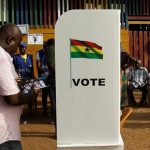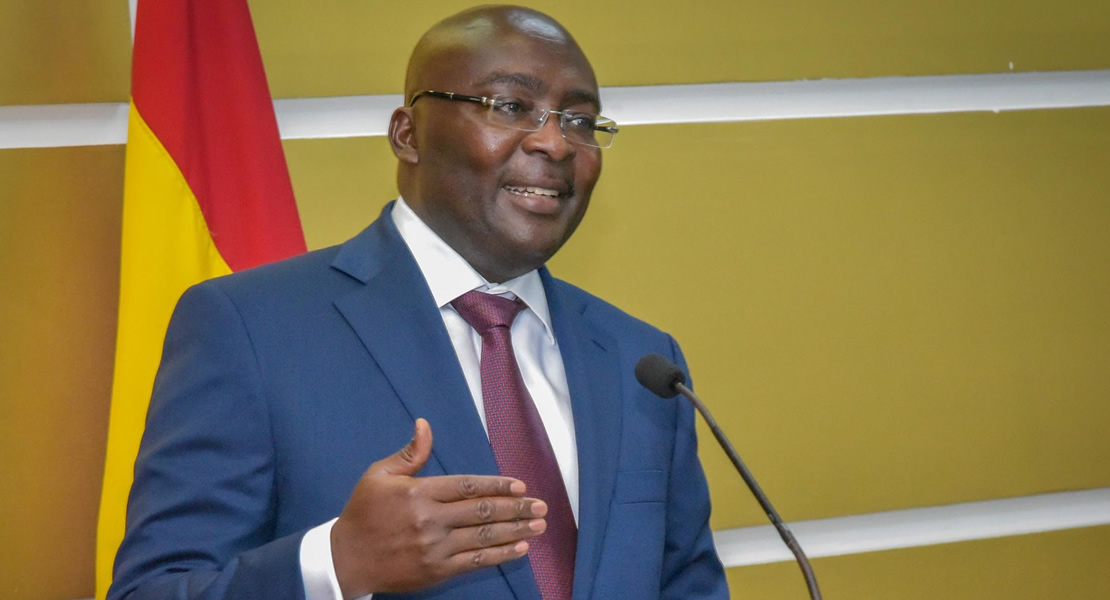“[T]here is no authority on earth so inherently worthy of respect, or invested with a right so sacred, that I would want to let it act without oversight or rule without impediment” — Alexis de Tocqueville.
1. Introduction
In the past three decades, Ghana has made a lot of progress in democratic governance reflecting in [the] successful eight elections and alternations of power between the two main political parties.
However, most Ghanaian academics and politicians have observed that Parliament in the Fourth Republic has not been effective in discharging oversight over the Executive, despite its extensive powers of scrutiny and oversight enshrined in the 1992 Constitution. This has raised a lot of public concerns at a time of increasing public expenditure and debt situation, as reported at the end of December 2020 of GH¢100 billion and GH¢292 billion (76 per cent of GDP), respectively.
It is now globally established that the effectiveness with which a legislative organ performs its oversight function is a major determinant of government accountability.
Significantly, in April 2021, the current Speaker of the Eight Parliament of the Fourth Republic, Mr Alban Bagbin, revived the debate when he lamented an “unsurprisingly low” Parliament’s current rating in oversight of the Executive.
He continued to explain that “Parliament and its Committees lack the needed support and assistance to perform their oversight functions” due to persistent underfunding by successive governments in the Fourth Republic. Consequently, the Public Accounts Committee (PAC) of Parliament that is charged with oversight and financial scrutiny is also inadequately funded. The PAC used public sector audit conducted by the Auditor-General (A-G), an important tool in the discharge of its duties, as auditing is an essential part of the process of accountability for public money and the governance of public services (ACCA,2016).
Related to Parliament’s funding is the financial independence of the Auditor General; if the A-G is not adequately funded this will have serious implications for PAC as it relies on the A-G’s report to carry out its important function of financial scrutiny and oversight.
Besides, the link between Parliament and A-G is precarious and is almost limited to the submission of audit reports for consideration by the Public Accounts Committee of Parliament. It is now best practice that Auditor-Generals are accountable to the Public Accounts Committee of Parliament. They carry out work on behalf of Parliament, and their budgets and performance are set and scrutinised by Parliament.
This is why the International Standards of Supreme Audit Institutions recommend that the relationship between Supreme Auditors and Parliaments should be established by the Constitution.
Most academics and political commentators also blame the Constitutional design and partisan attitudes of Members of Parliament (MPs) as the primary reasons for [the] weak oversight and accountability situation. According to the Majority Leader, Mr Osei Kyei-Mensah-Bonsu, “this is the time for [a] reset for us [Ghanaian citizenry], there can be no better time to take a better look at the Constitution.”
Introducing more insight, Nana Professor S. K. B. Asante who played a major role in the drafting of the 1992 Constitution argues that the problems emanate from the Political Culture and not the Constitution, as Ghanaian Politicians prefer an Executive with strong powers. Without appropriate checks and balances or oversight, Ghana’s culture of high power distance and collectivism is susceptible to corruption, patronage and clientelism. In 1996, the head of the World Bank, James Wolfenson, found the “cancer of corruption” as the major impediment to the economic development of poor countries.
In high power distance cultures, power-holders are entitled to privileges and there is high respect for persons in authority as they are “considered are sacred” (Sarpong, 1976). Moreover, in high collective cultures, the concern is for the group rather than the individual, which manifests in close long term commitment to the group like family or political party. Consequently, all decisions are expected [to] take the interest of the in-group or political party into account.
This paper examines the issue of oversight and accountability by critically analysing the impact of Ghanaian Political Culture and 1992 Constitution on the effective performance of oversight functions of Parliament and the Auditor General
2. Executive Oversight and its importance in Accountability and Sustainability of Democracy
It is well established that effective oversight of a country’s Executive is a key determinant of accountability as it ensures that the government is held to account for its actions and fiscal policy decisions.
Moreover, effective oversight allows the legislature to monitor both public service provision and value for money. Accountability refers to the process of holding to account, overseeing and keeping in check those entrusted with public responsibilities in fulfilment of their tasks or functions (Shedler et al., 1999).
Therefore, oversight and accountability ensure that there the availability of information needed by the public to judge the performance of the government and public officials on how taxpayers’ money is used, how well it is being spent, and the integrity of the overall system is the basis of public accountability.
Effective oversight also ensures that policies announced by [the] government and authorized by Parliament are delivered. As beautifully captured by John Stuart Mills, “[a] governing class not accountable to the people are sure, in the main, to sacrifice the people to the pursuit of separate interests and inclinations of their own.”
As widely argued, democracy remains elusive if those in power cannot be held accountable in public for their acts or omissions, for their decisions, their expenditure or policies.
Morlino (2010) identifies two types of accountability in democratic governance: electoral (or vertical) and inter-institutional (or horizontal) accountability.
Electoral accountability is the most important, however, it is intermittent. It ensures that officeholders are called upon to account for their stewardship to the people. This can be achieved if the citizens acquire the skills to enable them to participate in governance.
In Ghana, electoral accountability as reflected in split parliament after the 2020 elections, is effectively practised by the people (voters) every four years.
Inter-institutional accountability which mainly comprises the oversight functions of Parliament and the Judiciary are performed on an ongoing basis and are instrumental in providing voters with the requisite information they need to assess the performance of the government.
The mandate of Parliament is to represent and protect the people of Ghana within the framework of the Constitution, deliberate on matters, inform the citizenry on salient issues, scrutinize financial matters, oversee the Executive and the governance institutions, as well as approve and ratify agreements.
Constitutional Mandate of Parliament
Article 103(3) of the 1992 Constitution charges Committees of Parliament with such functions, including the investigation and inquiry into the activities and administration of ministries and departments as Parliament may determine.
Importantly, Chapter Thirteen of Ghana’s 1992 Constitution (Finance) grants Parliament extensive powers in [the] financial management of the country in the form of approval of budget and imposition of taxes under the authority of Act of Parliament.
Furthermore, Parliament is expected under Articles 184(4) and 187(6) to debate the report of the Auditor-General and appoint where necessary, in the public interest, a committee to deal with any matters arising from it.
It is worthy of note that in the year 2020, the total of revenue and grants realised was GH¢55.00 billion against a target of GH¢53.70 billion.
However, the corresponding expenditure amounted to GH¢100 billion against a revised target of GH¢97 billion. The result was a deficit of 13.7 per cent of GDP, including financial sector clean-up which had to be financed.
Ghana’s debt position at the end of 2020 stood at GHS292 bn (76 per cent of GDP) which at the going rate of GHS5.78 to US$, translates into US$50.52bn is quite alarming and requires the requisite attention of the citizenry.
[A] Public sector audit conducted by the auditor general is an essential part of the process of accountability for public money and the governance of public services (ACCA,2016). ACCA’s work on the public sector has highlighted that effective scrutiny or oversight by parliaments requires the provision of high-quality financial reports and accounting information as well as independent audit.
Undoubtedly, the effectiveness of the above oversight functions of Parliament depends heavily on public sector auditing provided by the Auditor General.
Public Accounts Committee of Parliament
In Ghana, the Public Accounts Committee, considered the audit committee of parliament, is Parliament’s most important committee in oversight and scrutiny as it helps to hold the government to account for its use of public funds and resources by examining the public accounts.
It should be noted that when he was [the] Leader of the Minority Party, the current speaker, Mr Alban Bagbin, was the chairperson of the Public Accounts Committee of Parliament from 2001 to 2004.
In order to perform its oversight functions effectively, members of Parliament require objective and fact-based information about how well the government collects and spends public funds, that will enable them to assess governance and performance issues.
In most cases this information is provided by a State Auditor (or Auditor General). Although the relationship between the Auditor General and PACs has evolved differently in the different jurisdictions, the work of the Auditor-General is an essential element. Accountability academics and politicians like McGee, Stapenhurst et al. have observed that the committees´ relationship with the Auditor-General plays an important role in the performance of the committee’s functions.
However, the current relationship between Parliament and the Auditor General as defined by the 1992 Constitution, seems limited to the submission of the A-G’s report for Parliament’s debate under Articles 187(2) and 184 of the Constitution.
Moreover, the establishment of the A-G and the Audit Service as Public Officer and Public Service respectively by the 1992 Constitution means they are independent and distinct of Parliament. As a result, the collaboration has become more difficult as the Constitution does not provide for Parliament to request A-G to conduct audits into areas of suspected malfeasance, which does not augur well for effective collaboration in the preventive and pre-emptive oversight.
Furthermore, Article 187(7)(a) prevents Parliament from requesting the A-G to conduct audit and investigations into other areas of irregularities not captured in the A-G’s current mandate as it will be considered as direction or control of the A-G in the performance of his functions under the Constitution.
Consequently, the engagement between A-G and Parliament has been limited to the consideration of reports submitted by the A-G to Parliament with [an] adverse effect on the capacity of Parliament to carry out its important Executive oversight function. This has created a gaping loophole which impacts adversely on the achievement of effective public financial accountability.
It is now normal and best practice globally for parliaments to appoint their auditor generals and board members of their Supreme Audit Institutions (SAI) as pertains in most commonwealth countries like the United Kingdom, Canada, Australia, South Africa and particularly in the United States.
Currently, long-lasting improvements are being made globally in National Audit Acts and Constitutions to enhance accountability and transparency in the management of public funds. The global trend is for the Auditor General to be associated with the legislature as an officer of Parliament and be both responsible and accountable to Parliament.
However, the constitutional arrangements governing the Office of the Auditor-General in Ghana have not seen any significant improvements since the enactment of the 1969 Constitution, the relic of the 1992 Constitution and the Audit Service Act 2000, Act 584.
Constitutional Mandate of the Auditor General
The Office of the Auditor-General is one of the key institutes for oversight, accountability, monitoring and evaluation in the Ghanaian governance process.
Generally, the 1992 Constitution and the Audit Service Act 2000, Act 584 mandate the Auditor General of Ghana, to hold the Government accountable to Parliament by reporting significant issues in the use of public resources. Article 187(2) of the Constitution requires the A-G to audit and report on public accounts of Ghana and the accounts of all public offices, and under Article 187(5) submit his or her report to Parliament within six months after the end of the immediately preceding financial year, drawing attention to any irregularities in the accounts audited and to any matter which in his opinion ought to be brought to the notice of parliament for its debate and dealing with matters arising.
Section 13(e) of the Audit Service Act also empowers the Auditor-General to ensure that programmes and activities in the public sector have been undertaken with due regard to economy, efficiency and effectiveness in relation to the resources utilised and results achieved.
Moreover, per clause 187(7)(b) of the 1992 Constitution the A-G may disallow any item of expenditure which is contrary to law and surcharge amount involved to the persons responsible for such item.
When sufficiently independent and adequately funded, the auditor general’s office could be a strong institution with the needed expertise and resources to assist Parliament and the citizenry to hold [the] government accountable and manage the wealth of the nation. As by expressing objective opinion on whether public resources are being efficiently managed, the state auditor helps public organisations and instill confidence among citizens and stakeholders for political legitimacy.
Challenges of the current oversight and accountability mandates of Parliament and Auditor General
Generally, Parliament has been criticized for failing to emerge as a credible and effective check on presidential and executive power. A lot of factors including the following have been enumerated as causing a low rating of Parliament’s oversight function:
1. Lack of technical support and resources – parliament’s dependence on the Executive for budgetary appropriation
2. Substantive interests of members of parliament
3. Partisan attitudes of MPs to parliamentary proceedings
4. Appointment of [a] majority of ministers from parliament – [a] constitutional requirement
5. The principle of collective responsibility
6. Members are not equipped with the requisite human and material resources.
7. Enticement of ministerial appointments by Presidents
It is being claimed that politicians must do the executive bidding or risk being marginalized even as a member of parliament. It has been established that the political will of members of parliament (MP) is the single most important determinant of oversight effectiveness.
However, in Ghana’s current political system, other conflicting demands and incentives compete with MPs interest to carry out the oversight function. This explains why the focus of the international community in strengthening the oversight capacity of Parliament for years on success has not yielded the desired results. Pelizo and Stapenhurst (2012) suggest that the single most important factor in the shaping and reshaping of the structure of incentives that parliamentarians are confronted with is represented by voter demands.
It is argued that more attention should be paid to the alignment of voter demands with incentives of parliamentarians to pave the way for oversight capacity. Voters should be made to demand good governance by signaling their support to oversight activities, and thereby signaling to parliamentarians that they will be electorally rewarded if they take some steps to satisfy their voter demands of effectively overseeing the executive and promoting good governance.
Interestingly, the results of the 2020 parliamentary elections confirmed changing voter demands reflected in voters’ sanctioning or rewarding of parliamentarians at the elections, resulting in split parliament of 137 constituencies for the two major political parties, NPP and NDC and the election of a Speaker from the party of opposition.
This outcome reflects increasing electoral accountability, albeit intermittent, in Ghana. It also demonstrates that Ghanaian voters are beginning to hold their parliamentarians accountable, at least once, every four years.
It is hoped that the new voters’ demand on parliamentarians will produce enough incentive or political will for Parliament to execute its oversight function effectively and play its key role in keeping government accountable.
Late consideration and debate of Auditor-General’s report by Parliament
The main principles used in assessing the effectiveness of a country’s public financial management, as outlined by Public Expenditure and Financial Accountability (PEFA), are the timeliness of examination of audit reports by parliament; extent of public hearings on key findings undertaken by parliament; issuance of recommended actions by parliament; and implementation by the executive, and systematic follow-up by parliament.
According to Mr Kan Dapaah, a chartered accountant and former chairperson of the Public Accounts Committee, “a major challenge has been the unwillingness of the House leadership to lay reports of the Committee which are perceived to be embarrassing to the government in the house for debate. The result is that some reports are kept until after the four-year term of the Parliament when, under the Standing Orders of Parliament, such reports can no longer be laid”.
It is noteworthy that as at end of June 2020, the Public Accounts Committee (PAC) of Parliament had just completed four-day public hearings of A-G’s reports on activities of state institutions for the year 2017/2018. It must be stressed that the late production and hearing of audit report on the financial statements within the statutory period of six months after the immediately preceding year, adversely impacts on the usefulness of the work of the Public Accounts Committee and consequently the oversight role of parliament. Besides, subsequent investigations to sanction the perpetrators of malfeasance always prove futile as most of them would have then left their positions.
The essence of the constitutional deadline of submitting A-G’s report within six months June is to ensure that PAC can discuss the annual financial reports and the corresponding A-G’s reports before commencement of the discussion on the next (draft) budget. Best practice indicates that Parliamentary scrutiny of A-G’s report on the annual financial report should preferably take place within three months of submission. The late reporting of audit findings and public hearings in Parliament prevent the citizenry from holding the government and public sector entities accountable for their stewardship.
Although PAC has a wide remit, it has faced inadequate and perennial funding problem. In 2016, PAC could only conduct seven (7) public sittings to consider the A-G’s report and made a total of 13 recommendations involving retrieval of misappropriated public funds. In 2019, there were nineteen (19) sittings to consider the report of the A-Gs for 2016 financial year. The budget for oversight in 2020 was estimated at GHS31,347,144.
However, there is lot of opportunity to turn the tide in the Eighth Parliament of the Fourth Republic. Speaking at the inauguration of 8th Parliamentary Service Board of the Fourth Republic on 27 April 2021, the Speaker, Mr Bagbin, lamented “unsurprisingly low” Parliament’s current rating in oversight of the Executive. He attributed the current situation to the fact that “Parliament and its Committees lack the needed support and assistance to perform their oversight functions.” As a result of persistent underfunding over the years caused by unilateral placement of ceiling on the budget appropriation for Parliament and the Judiciary by successive governments in the Fourth Republic. Thus, affecting their capacity to perform their oversight duties effectively and efficiently.
Citing the lack of fiscal space in 2021, the Executive Secretary of the President, in a letter to Parliament informed the House of the Executive’s decision to ‘reduce their budget by over GHS190m and that of the Judiciary by over GHS70 million’. Interestingly, the Speaker rejected the reduction of Parliament’s budgetary allocation by the Executive in March 2021 on the basis that other “arms of government will also have to be strengthened to be able to perform their functions.” Realising the constitutional powers of Parliament, the Government bowed to the Speaker’s pressure and backtracked on March 24 with the recommendation of GHS523 million in allocation for Parliament as against a request of GHS533 million.
Besides, the political culture of Ghana may significantly play against an MP’s oversight role when his or her party is in power due to collective responsibility and the respect for authority.
3. Impact of Political Culture on Executive Oversight in Ghana
It has become increasingly common for political scientists to speculate as to the basic factors which may be common to all political systems and which, in their varying manifestations, determine the unique styles of political behaviour within each (Greg and Banks, 1965).
According to Forbes and Wield (2002), “Culture matters in consideration of success and failure in innovation as “it affects the policies that will work since practices need to accord with culture (p.154).
It has been established that political actions prevalent in countries are related to the ways in which their culture addresses fundamental issues including the relationship with authority, people and change (Inkeless and Levinson, 1969; Hofstede, 2001).
Hofstede’s (2001) seminal work on national cultural value dimensions identified five value dimensions that correspond to the ways or ‘mental programming’ with which social systems or countries solve their problems. Hofstede went head and produced scores for countries on each of the following five dimensions:
















